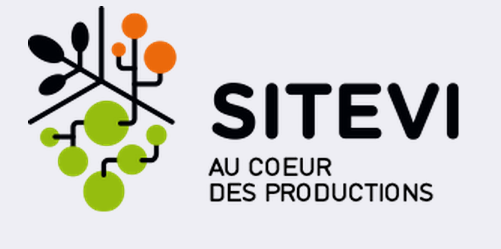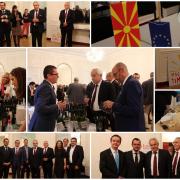
The President of the producers association, Mr Svetozar Janevski, expressed his satisfaction with this opportunity to present the diversity of the country – which exports 85% of its production, mainly to neighbouring countries but also to Western Europe, Russia or China – to professionals and to the press.
The Director General of the OIV, Mr Jean-Marie Aurand, praised this initiative and the revival of this country's wine market thanks to the investment in vineyards and wineries for the last fifteen years or so, which has enabled the specific characteristics of traditional vine varieties to be expressed through modern techniques that have been developed.
With 24,000 hectares of vineyards, the majority of wineries are located in the central part of the country, along the Vardar valley and especially in the Skopje, Tikves and Gevgelija-Valandovo regions.
90% of the 84 wineries for which information was compiled produce less than 50,000 hl, 5 have a production of between 50,000 and 150,000 hl and only 4 produce over 150,000 hl.
Of a total production of nearly 1.2 million hectolitres, 60% is red, based predominantly on local vine varieties (Vranec, Kratosija, Prokupec, Kavardaka) or international varieties (Merlot, Cabernet Sauvignon, Syrah, Pinot Noir). White wine is made from varieties such as Smederevka, Temjanika, Zilavka or Rkatsiteli, enabling the production of fresh and fruity wines that perfectly complement the country's Mediterranean gastronomy.
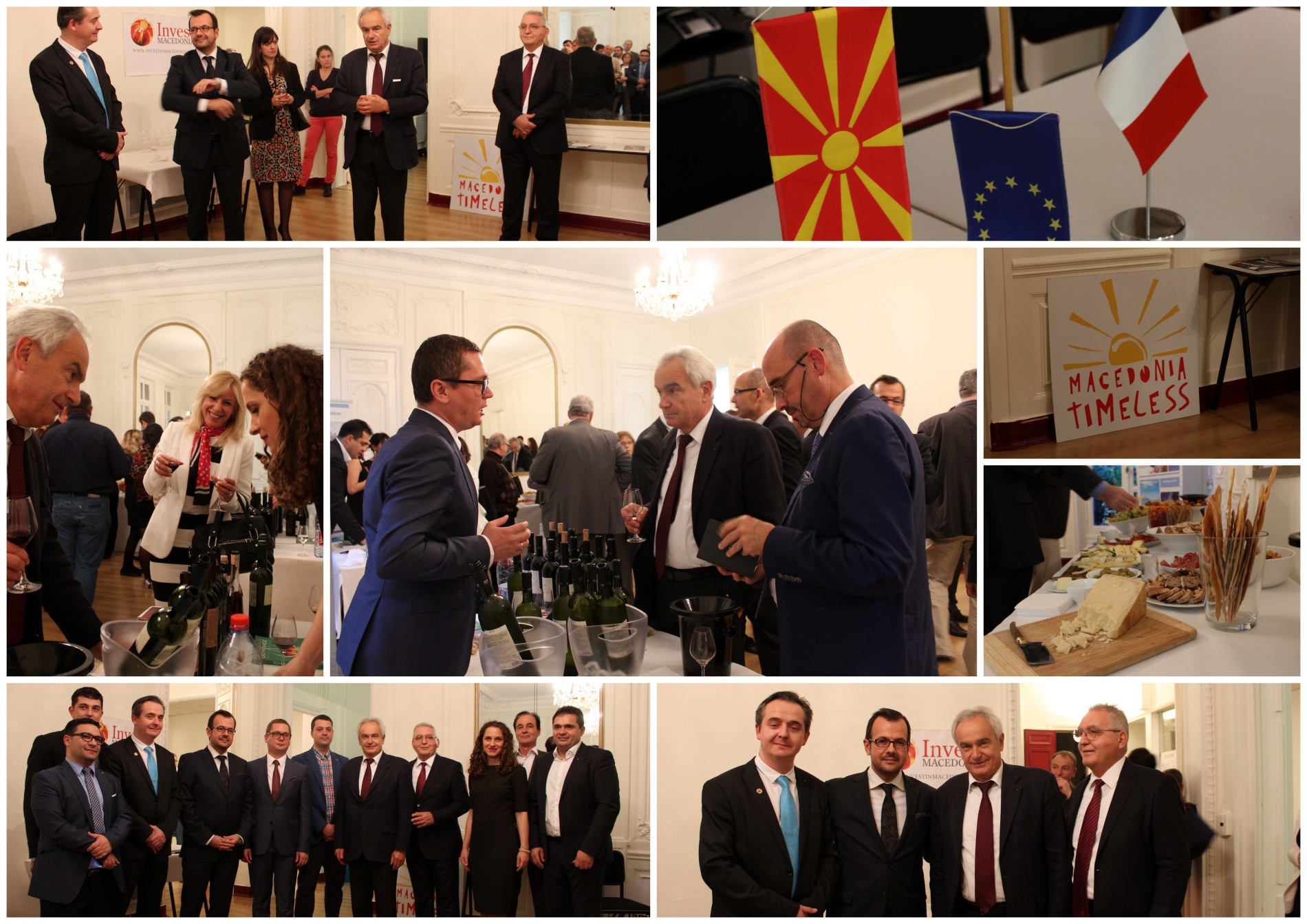
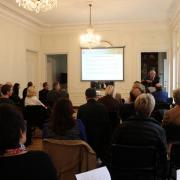
Global wine production, excluding juice and musts, is likely to reach 275.7 million hectolitres – a slight increase of 2% compared with 2014, according to the OIV's early estimates.
Global economic vitiviniculture data
2015 World wine production estimated at 275.7 mhl
With a slight rise of 2% compared with the previous year, world wine production in 2015 is at a good average
- Italy, with 48.9 mhl, has again become the biggest producer in the world, followed by France (47.4 mhl)
- Spain has returned to an average level of production (36.6 mhl)
- The United States has recorded a high level of production of 22.1 mhl for the second year running (+0.5% compared with 2014)
- In South America, Argentine production has declined (13.4 mhl), while Chile has seen record production (12.87 mhl)
- Australian (12 mhl) and New Zealand (2.4 mhl) production has remained almost stable for 3 years, excluding the exceptional 2014 production in New Zealand
2015 Global Economic Vitiviniculture Data
PPT Presentation (in French)
OIV Focus 2015: The rosé wine market
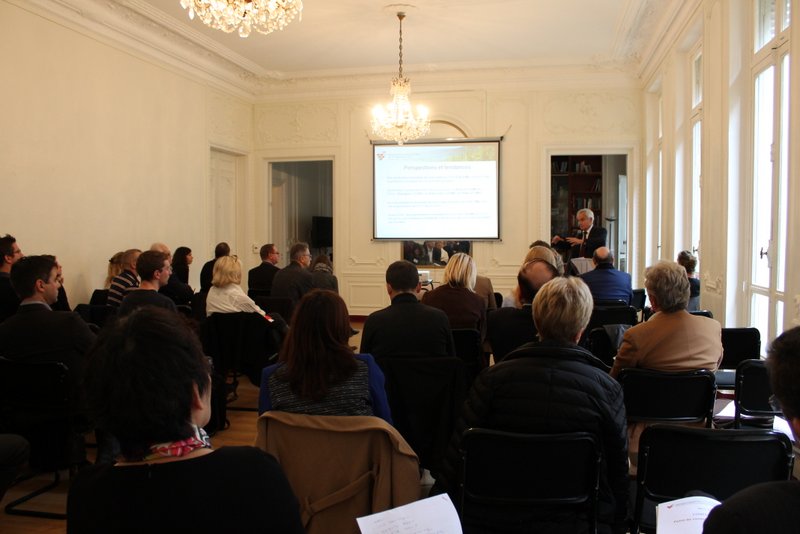
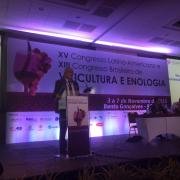
More than 500 participants from 11 different countries attended the scientific and technical presentations on the latest vitivinicultural innovations.
During this event, placed under the patronage of the OIV, the Director General, Jean-Marie Aurand, presented the state of the vitivinicultural product market and the major trends as well as the key axes of the Organisation's Strategic Plan.
During the Congress, Jean-Marie Aurand also had several meetings with the organisers (Ministry of Agriculture represented by the OIV delegate Helder Borges, EMBRAPA, IBRAVIN, PREFEITURA, etc.) of the future OIV Congress scheduled for 23-28 October 2016 in Bento Gonçalves.
A meeting with the Governor of the State of Rio Grande Do Sul, who played a significant role in the organisation of the event, took place in Porto Alegre. These meetings demonstrated the Brazilian authorities' strong commitment on all levels to ensuring the complete success of this Congress.
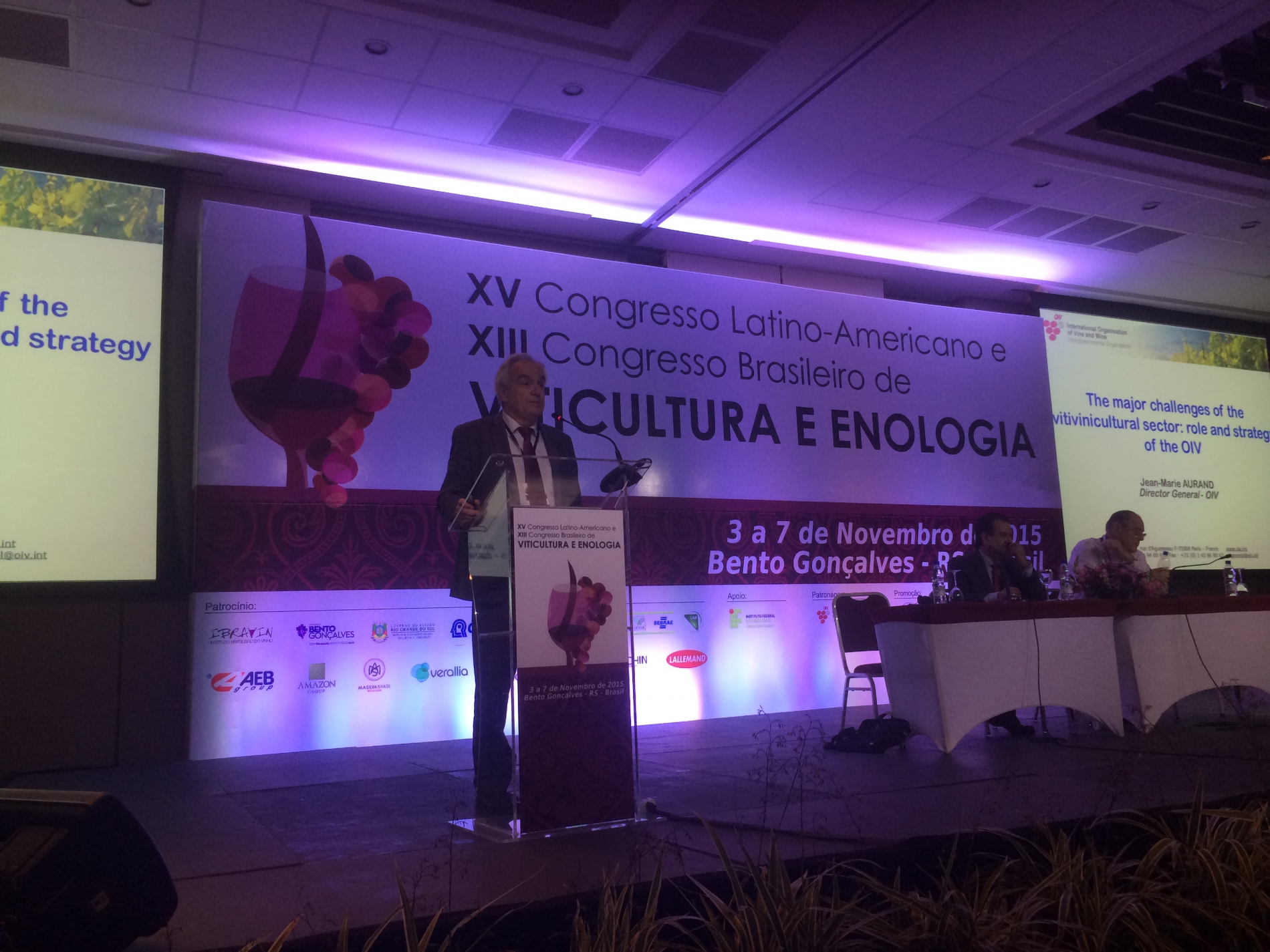

This competition, organised by the Institute under the patronage of the OIV, brought together nearly 300 samples from 15 countries and was a real success. A conference was held as a prelude to the contest, during which Jean-Marie Aurand presented the state of the global vitivinicultural market and its trends, underlining the role of the OIV within this context.
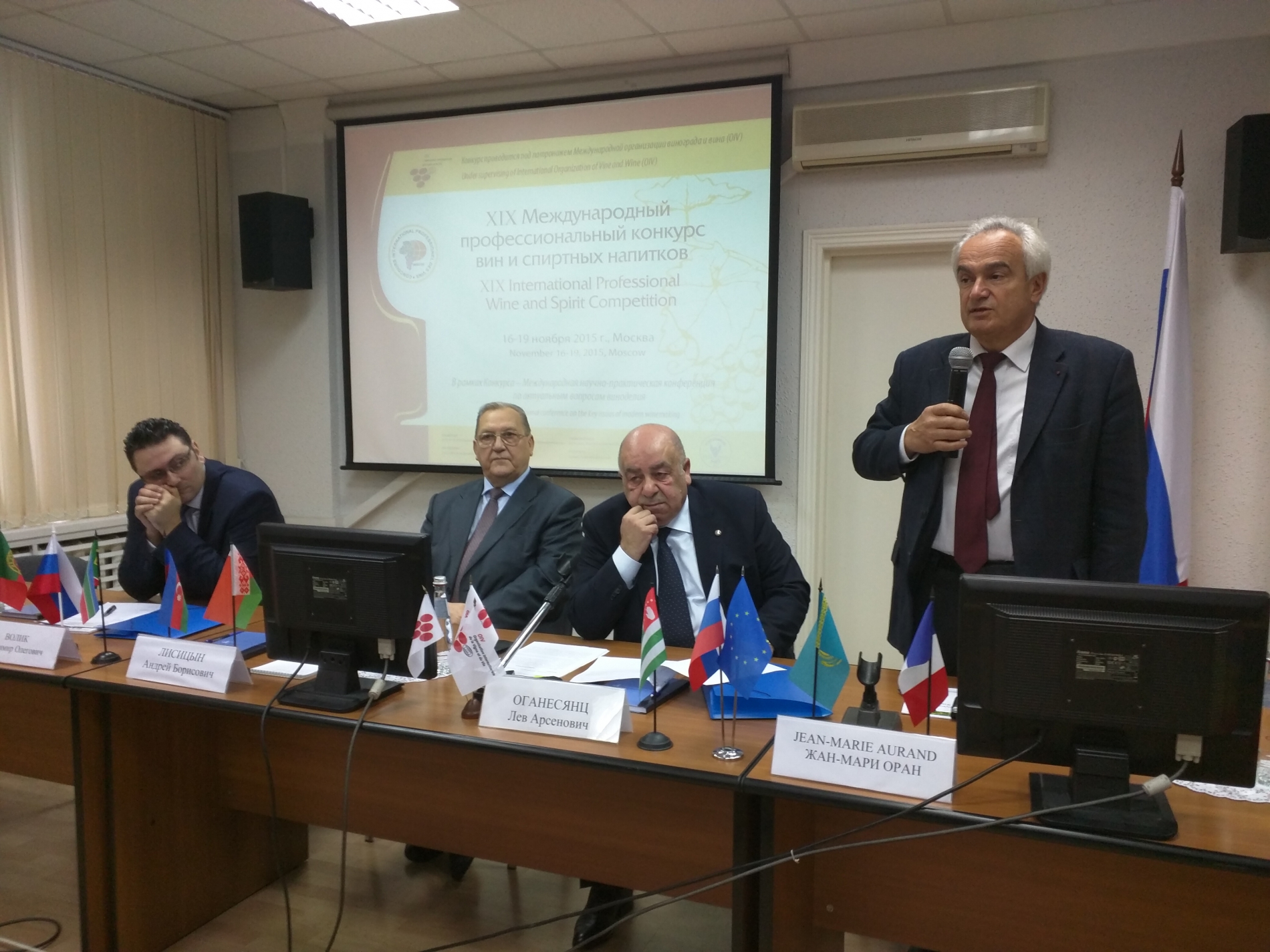
During a meeting with the Vice Minister for Agriculture, Mr Sergey Levin, the Minister presented the programme for the development of Russian viticulture, which was recently adopted by the government, to the Director General. This programme anticipates a doubling of the vineyard surface area between now and 2020, with the objective of reaching an area of 140 kha. The legislative framework is also under revision, including the production of a bill on the protection of geographical indications. It is within this context that the Vice Minister has indicated his desire to strengthen the involvement of Russia in the various working structures of the OIV. Jean-Marie Aurand praised these developments. He also noted the importance of international standards such as those drawn up by the OIV within a context of growing globalisation of the wine and spirits trade and increasingly demanding consumer expectations in relation to product quality and authenticity.
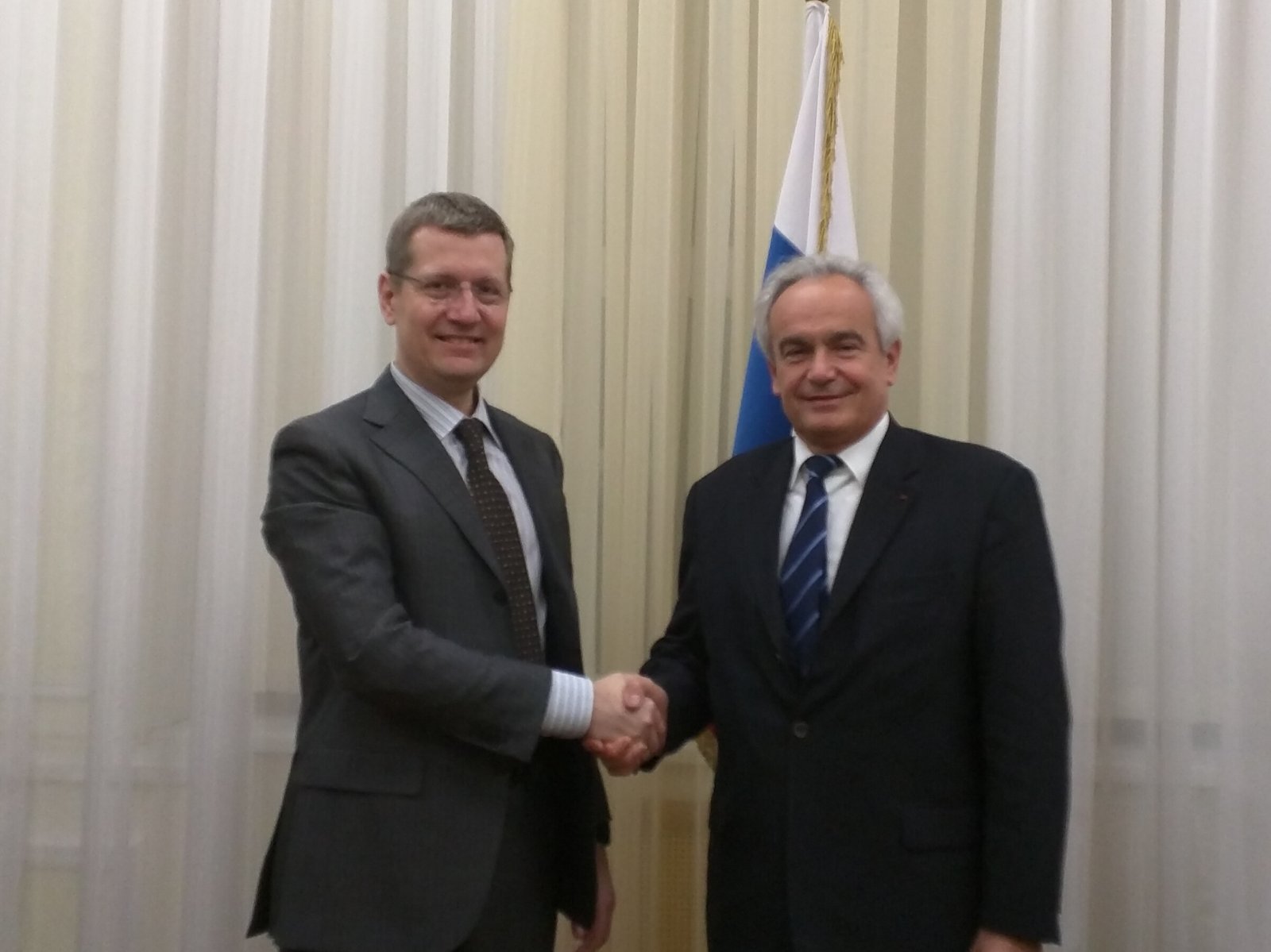
Finally, the Director General was paid a warm welcome at the Russian Academy of Sciences and met with the Russian Union of Oenologists and Winemakers.
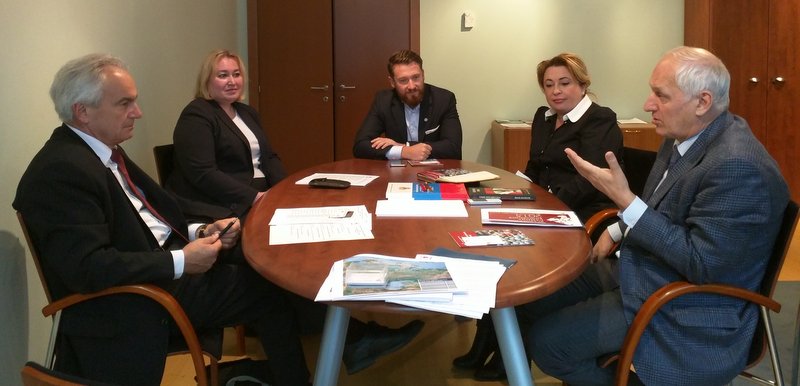
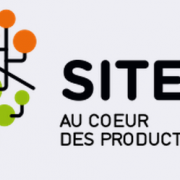
This year, the exhibition brought together 1000 exhibitors (150 more than in 2013) from 25 different countries.
Several technical conferences were also organised in connection with this exhibition, for example, on environmental concerns (water and pesticide management, etc.) and on the issue of diseases linked to vine dieback (diagnostic tools, etc.).
